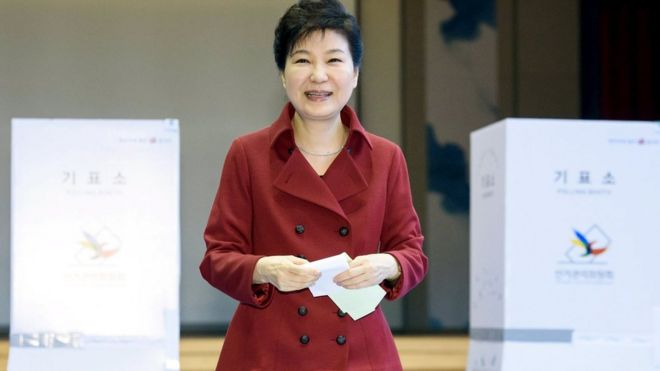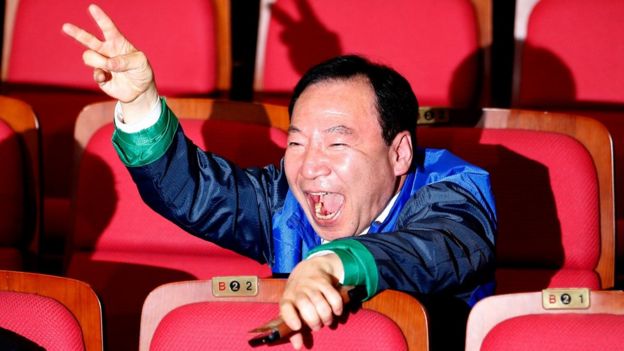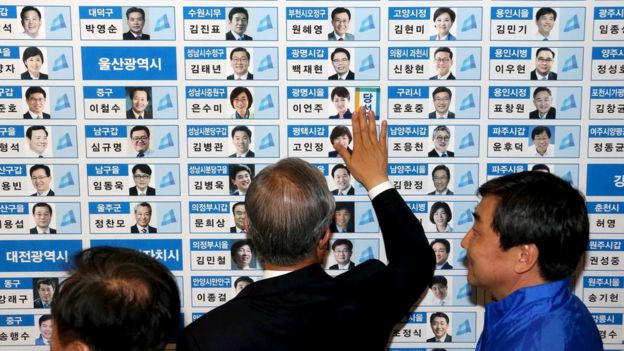(시사) 한국 집권당 선거에서 과반수 획득 실패
출처: http://www.bbc.com/news/world-asia-36033773
South Korea elections: President Park's party loses majority
- 3 hours ago
- Asia
 Reuters
ReutersThe governing party in South Korea has lost the parliamentary majority it has held for 16 years, partial results from Wednesday's general election show.
With more than 85% of votes counted, the centre-right Saenuri party has won 122 out of 300 seats. The opposition Minjoo Party has taken 123 seats.
Saenuri previously had only a slim majority in the National Assembly.
Analysts say discontent over South Korea's economy appears to have eroded the government's standing with voters.
The result also dents President Park Geun-hye's prospects of seeing her Saenuri party retain the presidency next year.
Ms Park has been criticised over her handling of the economy, which has seen rising unemployment - particularly among the young - falling exports and high levels of household debt.
Economic concerns dominate - analysis by Stephen Evans, BBC News, Seoul
The results indicate rising discontent probably over two issues.
Firstly, attempts by the government to weaken the legal protection workers have against being sacked. President Park's government had been pushing for this as the economy weakened and, she felt, became less competitive.
Secondly, unhappiness at what opponents of the government see as a heavier hand against dissidents and protesters. A left-wing opposition party was banned and its leaders arrested for their alleged sympathies with North Korea.
Household debt is high and rising in South Korea and unemployment among young people is at levels not seen for nearly two decades. These economic concerns seem to have dominated the election. North Korea was not a major issue.
Polls ahead of the election suggested Ms Park's party was on course to secure a substantial majority of seats.
But as the results started coming in, the success of the main opposition Minjoo Party became clear.
 AP
AP Reuters
ReutersOther opposition parties also did well - the People's Party winning 38 seats and the Justice Party taking six.
"The Saenuri Party humbly accepts the election results and voters' choice," said spokesman Ahn Hyung-Hwan.
"The people are deeply disappointed with us, but we've failed to read their mind."
Voters cast ballots at nearly 14,000 polling stations to elect 253 of the 300 lawmakers. The remaining 47 proportional representation seats are allocated to parties according to the numbers of votes they receive overall.
Turnout was 58%, up 3.8 percentage points from the 2012 election.